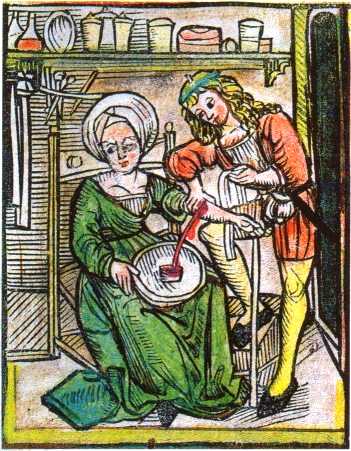The decision to embark on a medical career is also a decision to be perpetually evaluated based on factors outside and inside your control. I like to think of these factors—like your MCAT score, number and duration of volunteering positions, etc.—like I think about BMI: useful in looking at the broader picture of an individual, but often inadequate at judging what it is meant to judge.
When I was applying to medical school, I thought about why I was choosing to apply to certain schools. Location, prestige, likelihood of acceptance, average cost, and many more factors were important to me. But while thinking about what I wanted from a school, I also thought about what I didn’t want. I chose not to apply to any school that required the CASPer test for admission because I fundamentally disagree with the premise that personality (or its oft-used alias, judgment) can or should be measured.
The Pitfalls of Objectivity
In my opinion, it is unethical to measure personal characteristics, not to mention provide a quantitative score through an assessment and use it to predict how successful someone will be in medicine.
It concerns me that the future makeup of the medical workforce is partially being decided by supposedly objective measurements conducted in 90-110 minutes, with timed responses, by a company that charges you to evaluate your personal qualities. I find it difficult to put into words exactly why this bothers me so much and I can envision many valid objections to my arguments. Yet still, a visceral distaste remains.
To submit to such an evaluation feels like submitting to Orwellian forces intent on placing people into boxes of ‘good’ and ‘evil.’ The premise is degrading, and yet makes perfect sense if our goal is to make the job of doling out a limited number of desired positions in a desirable field easier. In the short term, this additional metric adds one more means for differentiating the worthy and unworthy. In the long term, it chips away at the philosophy of beneficence undergirding the medical profession by placing the burden of a difficult decision made by invested, complex humans face-to-face in the hands of faceless and nameless evaluators. There is no spirited discussion, no meeting of the minds. Only a screen, a timer, and a result.
To me, this also seems like liability mitigation. You can claim you have done your due diligence in weeding out those who do not have adequate judgment, empathy, or teamwork skills. But what differentiates someone who knows the right answer on a test from someone who lives that principle in a complicated real-world situation with real stakes? If you ask someone a tricky ethical question and hold a gun to their head in the form of admission or non-admission to a dream program, can you really expect an honest answer? This can only lead to a narrowing of diverse opinions in the medical field. You must make some evaluation of an applicant’s readiness for medical school, yes, but in my opinion, actions speak louder than words. Is demonstrated commitment to volunteering and community outreach not enough?
Said another way, is it a medical school’s responsibility to mold your competency in making ethical decisions and your ability to reason safely/humanely in a medical environment? Or is there an ethical trait that is inherent to a person prior to 4-8+ years of experience in medical training? I.e., “You either have it or you don’t.”
I can see why many institutions would believe a judgment/empathy test by a non-affiliated company is necessary. Theoretically, it is an unbiased assessment that wouldn’t be skewed by a brief encounter with an interviewer who may form discriminatory or inaccurate perceptions of an applicant. But is it bias that we are eliminating when we place the responsibility of the admission decision in the hands of an outside company? I have to wonder if what we are really doing is encouraging a sterile environment free from rich discourse and the frisson of dissent that naturally arises when two unique individuals meet.
The high volume of applicants to any given program doesn’t help either. Schools have very few opportunities to assess whether an applicant’s personality is a good fit and consider their attributes holistically beyond metrics like the MCAT or GPA, which are themselves inherently skewed to benefit those from privileged backgrounds. For those whose life circumstances didn’t allow for ample study time, or who had to work during undergrad, or who didn’t have the right connections, is a situational judgment test another opportunity to shine? I worry that these same applicants are being forced to pull from their already limited monetary resources for an opportunity to adhere to the status quo.
Where Do We Go From Here?
The bright side of my concerns is that they speak to something wonderful about medicine that exists outside of the anxiety-inducing forces of capitalism, bureaucracy, and institutional discrimination. This inalienable thing may or may not be the soul, or simply the desire to care for and be cared for by others. It is the ultimate job security, the thing that AI will never have, and hopefully the downfall of both subtle and blatant attempts at dehumanizing our chosen vocation.
There is much emphasis placed in the pre-med interview preparation sphere on how to answer the question, “Why medicine?” We have all been counseled ad nauseam that the answer “to help people” is the worst answer you can give. I would like to push back against this assertion. What if, for some, the desire to help people arises spontaneously, abstractly, fluidly, without any one precipitating memorable factor? If medicine is a calling, why does the call have to be tangible or describable? What if putting something into words only serves to misrepresent it?
In her book, “Slow Medicine,” Dr. Victoria Sweet describes a profound experience she has after being injured while working as an Internal Medicine resident. Her words elucidate my feelings better than I can:
“Not until I myself became a patient, and understood from inside the archetype of Patient, which is an archetype of dependence, of helplessness and need, could I understand its opposite. It is the vulnerability, fear, and dependence of the patient that calls forth the archetype of Physician—calm, unafraid, authoritative. A call and an answer. As long as there is sickness, therefore, there will be patients, and as long as there are patients, there will be physicians.”
I include this quote here because it speaks to that intangible element that makes a healer, that personality tests and judgment assessments seek to identify, and that in trying to identify, they somehow diminish. The physician-patient relationship is ethically gray because it is a relationship. There can be no prescribed right answer because it is not a test. It arises from need; it is met by good intent.
Can you measure someone’s soul?
Should you even try?
Sarah Brady is a member of The University of Arizona College of Medicine – Phoenix, Class of 2026. She was born in Georgia, raised in Florida, and currently lives in Arizona. She graduated from Arizona State University with consecutive degrees in English Literature and Biomedical Engineering. She loves to garden and particularly enjoys attempting to grow plants that are entirely unsuited to the Arizona climate.
Image © Ashley Lorraine Baker


